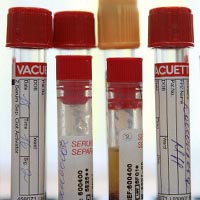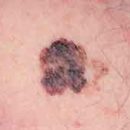The study of immune status in congenital immunodeficiators is carried out in order to determine the activity of the main components of the immunity system that play an important role in the protection of the body from infections. To assess their functioning, tests of the first and second level are used.
Content
Methods of studying immune status in immunodeficiency
The study of immune status in immunodeficiency is to study the number and functional activity of the main components of the immune system playing a major role in the protection of the body from infections. Such factors include phagocytic system, complement system, T- and B-system immunity. Methods used to assess the functioning of these systems are conditionally divided into tests of the 1st and 2nd levels. Level 1 tests are approximate and aimed at identifying coarse defects in the immune system, while level 2 tests are functional and aimed at identifying a specific «breakdown» in the immune system.
Tests to evaluate phagocytosis
Tests of the 1st level include methods aimed at identifying the product of the functioning of the corresponding immunity system, which determines its antimicrobial effect. Level 2 tests are optional, they significantly enrich information on the functioning of the corresponding immunity system.
The tests of the 1st level of phagocytosis estimate include the definition:
- Absolute number of neutrophils and monocytes - blood cells
- Microbial absorption intensity neutrophils and monocytes
- Phagocyte abilities kill microbes
Tests of the 2nd level of phagocytosis estimate include the definition:
- Chemotaxis Phagocyt intensities
- Expression of adhesion molecules on the surface membrane of neutrophils
Tests for determining the level of activity of humoral immunity
The tests of the 1st level of estimation of the B-system of immunity include the definition:
- Immunoglobulins G, A, M in blood serum
- Immunoglobulin E in blood serum
- Determination of the percentage and absolute number of B-lymphocytes in peripheral blood
Determining the level of immunoglobulin - this is still an important and reliable method for evaluating the B-system of immunity. It can be considered the main method of diagnosing all forms of immunodeficiency associated with antibody biosynthesis.
 The tests of the 2nd level of estimation of the in-system of immunity include the definition:
The tests of the 2nd level of estimation of the in-system of immunity include the definition:
- Immunoglobulins, especially immunoglobulins class G
- Secretor Immunoglobulin class A
- Specific antibodies to protein and polysaccharide microbial cell antigens
Definition of immunoglobulins G represents a certain diagnostic value, since at the normal level of immunoglobulins G may be deficiencies on immunoglobulin subclaursions. In such people, in some cases, immunodeficiency states are observed, manifested in increased infection.
Important information about the state of humoral immunity gives the definition of antibodies to bacterial protein and polysaccharide antigens, since the degree of protection of the organism on this particular infection depends not on the general level of immunoglobulins, but on the number of antibodies to its pathogen.
Valuable information on the state of humoral immunity can be obtained not only in determining the level of immunoglobulins or antibodies to certain antigens, but also by studying their functional properties. These primarily include the property of antibodies as affinity, from which the strength of the interaction of antibodies with an antigen depends. Low-phthine antibodies can lead to the development of an immunodeficiency state.









